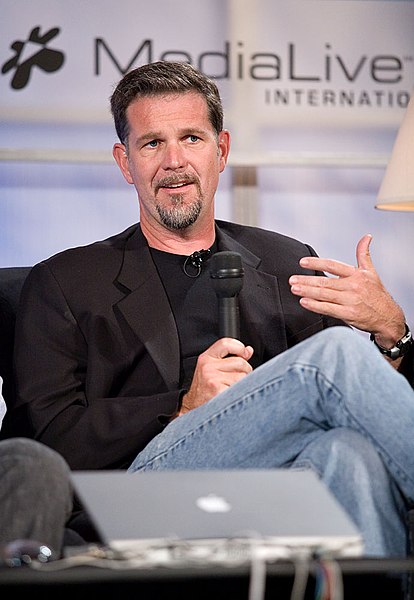Choose Your Impact: The Importance of Time Management and Personal Responsibility for Leadership Development
Today’s Choice, Tomorrow’s Impact: The Power of Time Management and Personal Responsibility for Leaders
Time is one of the most precious resources we have as individuals. We can never get back the time we’ve lost, and we can never buy more of it. Time is also an essential element of leadership development, as leaders who can manage their time effectively are more productive, efficient, and successful in achieving their goals.
The connection between time and progress is undeniable. If you’re intentional with your time and use it wisely, you’ll make progress towards your goals. On the other hand, if you’re not intentional with your time and waste it on unimportant or irrelevant tasks, you’ll likely fall behind and struggle to achieve your goals.
Moreover, what you did yesterday has an impact on today. Every action you take, or decision you make, has consequences that can affect your present and future. Therefore, it’s essential to be mindful of how you spend your time and how your actions today will impact tomorrow.
In this article, we’ll explore the importance of being intentional with your time and making progress, how yesterday’s actions can impact today, how today’s actions can impact tomorrow, and strategies for living on purpose, living your standard, and doing the work. By the end of this article, you’ll have a better understanding of the connection between time and progress, and how you can leverage your time to achieve your goals and become a successful leader.
The Connection between Time and Progress
As a leader, your success is directly tied to your ability to manage your time effectively. Time management is all about being intentional with your time, prioritizing tasks, and focusing on what’s important. By doing so, you can make progress towards your goals and achieve success.
The connection between time and progress is simple. If you want to make progress, you need to invest your time wisely. This means focusing on tasks that are important, high-impact, and aligned with your goals. By doing so, you’ll move closer towards achieving your goals, and ultimately towards success.
In contrast, if you’re not intentional with your time, you’ll waste it on unimportant tasks that don’t contribute to your success. This could include scrolling through social media, watching TV, or engaging in other time-wasting activities. These distractions can lead to procrastination and hinder your progress towards achieving your goals.
Effective time management is all about being intentional with your time. This means identifying your goals, breaking them down into smaller, actionable tasks, and prioritizing those tasks based on their importance and impact. This approach allows you to focus on the most critical tasks, allocate your time efficiently, and make progress towards achieving your goals.
The connection between time and progress is clear. If you want to make progress and achieve your goals, you need to be intentional with your time. This means prioritizing tasks, focusing on what’s important, and avoiding distractions. By doing so, you’ll move closer towards success and become a more effective leader.
The Impact of Yesterday on Today
Yesterday’s actions can have a significant impact on today. Whether positive or negative, the actions you took yesterday can affect your present and future. Therefore, it’s essential to be mindful of how you spend your time and how your actions can impact your life and your career.
One way yesterday’s actions can impact today is through the carryover effect. This occurs when tasks or issues from yesterday spill over into today and disrupt your plans. For example, if you didn’t complete a task yesterday, you may have to carry it over to today, causing you to fall behind on your current tasks. This can lead to stress, frustration, and a sense of overwhelm.
Another way yesterday’s actions can impact today is through the emotional impact. If you had a bad day yesterday or experienced a setback, it can carry over into today and affect your mood, energy levels, and productivity. Negative emotions can be draining and affect your ability to focus, make decisions, and engage with others effectively.
To manage yesterday’s impact on today, it’s essential to take a proactive approach. This means reviewing yesterday’s actions, identifying any carryover tasks, and prioritizing them based on their importance and urgency. It also means taking steps to manage your emotions and mental state by practicing self-care, engaging in positive activities, and staying focused on your goals.
Successful individuals have found ways to manage yesterday’s impact on today effectively. For example, some successful leaders use a reflection process at the end of each day to review their accomplishments and identify any carryover tasks. Others use techniques such as meditation, exercise, or spending time with loved ones to manage their emotions and stay focused on their goals.
Yesterday’s actions can have a significant impact on today. However, by taking a proactive approach, managing carryover tasks, and focusing on self-care and goal-setting, you can effectively manage yesterday’s impact on today and continue to make progress towards achieving your goals as a leader.
The Impact of Today on Tomorrow
Today’s actions can have a significant impact on tomorrow. Every action you take, or decision you make, can shape your future and determine your success as a leader. Therefore, it’s essential to be intentional with your time and actions, and focus on tasks that will positively impact your future.
One way today’s actions can impact tomorrow is through the cumulative effect. This occurs when you consistently take small, positive actions towards your goals each day. Over time, these actions add up and create a significant impact on your success. For example, if you consistently work towards building your network, you’ll gradually expand your reach and influence, leading to more opportunities and success in the future.
Another way today’s actions can impact tomorrow is through the ripple effect. This occurs when one positive action leads to other positive actions and creates a chain reaction of success. For example, if you consistently exceed expectations in your work, you’ll build a reputation for excellence, leading to more opportunities and success in the future.
To make the most of today and positively impact tomorrow, it’s essential to prioritize tasks that align with your goals and values. This means setting clear goals, breaking them down into smaller, actionable tasks, and prioritizing those tasks based on their importance and impact. It also means taking a proactive approach to identifying and pursuing opportunities that will lead to success in the future.
Successful individuals have found ways to leverage today’s actions to positively impact tomorrow. For example, some successful leaders prioritize self-improvement and skill-building to expand their capabilities and increase their value in the marketplace. Others focus on building relationships and expanding their network to create more opportunities for success in the future.
Today’s actions can have a significant impact on tomorrow. By being intentional with your time and actions, focusing on tasks that align with your goals and values, and taking a proactive approach to pursuing opportunities for success, you can positively impact your future as a leader.
Choosing a Positive Impact
As a leader, you have a choice in how you show up and the impact you have on those around you. You can choose to have a positive impact by focusing on positivity, empathy, and growth, or you can choose to have a negative impact by being negative, closed-minded, and stagnant. It’s essential to be mindful of the impact you’re having on others and to choose to have a positive impact.
Personal responsibility plays a significant role in making choices and choosing a positive impact. You have the power to control your actions, thoughts, and behaviors, and how you choose to use that power can make a significant difference in your life and your career. By taking responsibility for your choices and their impact on others, you can create a positive and empowering environment for yourself and those around you.
To choose a positive impact, it’s essential to focus on positivity, empathy, and growth. This means focusing on solutions instead of problems, being empathetic towards others’ perspectives, and continually striving for personal and professional growth. It also means practicing gratitude, kindness, and generosity towards others and yourself.
Successful individuals have found ways to choose a positive impact and create a positive environment for themselves and those around them. For example, some successful leaders focus on building a positive culture within their organization by promoting teamwork, open communication, and continuous learning. Others prioritize empathy and kindness towards others, which creates an environment of trust and support.
Choosing a positive impact is essential for becoming a successful leader. By taking personal responsibility for your choices and their impact on others, focusing on positivity, empathy, and growth, and practicing gratitude, kindness, and generosity, you can create a positive environment for yourself and those around you. This, in turn, can lead to increased success and fulfillment as a leader.
Living on Purpose
Living on purpose means living a life that aligns with your values, beliefs, and goals. It’s about being intentional with your time, actions, and decisions, and living a life that feels authentic and fulfilling to you. As a leader, living on purpose is essential to achieving success and making a positive impact on those around you.
Living on purpose starts with identifying your values, beliefs, and goals. This means taking the time to reflect on what’s important to you, what motivates you, and what you want to achieve in your life and career. By identifying your purpose, you can create a roadmap for your life and work towards living a life that feels authentic and fulfilling.
Living on purpose also means being intentional with your time and actions. This means prioritizing tasks that align with your purpose, focusing on the most important things, and avoiding distractions that don’t contribute to your goals. It also means being mindful of how your actions and decisions impact others and the world around you.
Successful individuals have found ways to live on purpose and create a life that aligns with their values and goals. For example, some successful leaders have created a personal mission statement that outlines their purpose and values, which serves as a guide for their life and work. Others prioritize self-reflection and regularly assess whether their actions align with their purpose and values.
Living on purpose is essential for becoming a successful leader. By identifying your purpose, being intentional with your time and actions, and prioritizing tasks that align with your values and goals, you can create a life that feels authentic and fulfilling. This, in turn, can lead to increased success, happiness, and fulfillment as a leader.
Living Your Standard
Living your standard means holding yourself to a high level of excellence and consistently meeting or exceeding that standard in everything you do. As a leader, living your standard is essential to achieving success, gaining respect, and making a positive impact on those around you.
Living your standard starts with setting high expectations for yourself. This means setting goals that challenge you, pushing yourself to excel in everything you do, and never settling for mediocrity. It also means holding yourself accountable for your actions and decisions and taking responsibility for your mistakes.
Living your standard also means having a strong work ethic and a commitment to excellence. This means putting in the effort and hard work required to achieve your goals, consistently seeking feedback and opportunities for improvement, and continually learning and growing as a leader.
Successful individuals have found ways to live their standard and consistently meet or exceed their own expectations. For example, some successful leaders set specific, measurable goals for themselves and track their progress towards those goals. Others prioritize self-reflection and regularly assess their performance and identify areas for improvement.
Living your standard is essential for becoming a successful leader. By setting high expectations for yourself, holding yourself accountable, having a strong work ethic and a commitment to excellence, and consistently meeting or exceeding your own expectations, you can gain respect, make a positive impact on those around you, and achieve success as a leader.
Doing the Work
Doing the work means putting in the time, effort, and energy required to achieve your goals and become a successful leader. It’s about taking action, staying focused, and persevering through challenges and setbacks. As a leader, doing the work is essential to achieving success and making a positive impact on those around you.
Doing the work starts with setting clear, specific goals for yourself. This means identifying what you want to achieve, breaking it down into smaller, actionable tasks, and prioritizing those tasks based on their importance and impact. It also means being committed to your goals and not giving up when faced with obstacles or setbacks.
Doing the work also means being disciplined and consistent in your actions. This means putting in the time, effort, and energy required to achieve your goals, even when it’s hard or uncomfortable. It also means being mindful of your habits and behaviors and making adjustments as needed to stay on track.
Successful individuals have found ways to do the work and achieve their goals as leaders. For example, some successful leaders prioritize time management and focus on their most important tasks first. Others prioritize self-discipline and focus on developing strong habits and routines that support their goals.
Doing the work is essential for becoming a successful leader. By setting clear goals, being committed, disciplined, and consistent in your actions, and persevering through challenges and setbacks, you can achieve your goals and make a positive impact on those around you.
Prioritizing Purpose, Standards, and Work: The Keys to Successful Leadership
Time management, personal responsibility, living on purpose, living your standard, and doing the work are essential components of leadership development. As a leader, it’s crucial to be intentional with your time, prioritize tasks that align with your goals and values, and choose to have a positive impact on those around you.
The connection between time and progress is undeniable. If you’re intentional with your time and use it wisely, you’ll make progress towards your goals. Yesterday’s actions can impact today, and today’s actions can impact tomorrow. By being proactive, managing carryover tasks, and focusing on self-care and goal-setting, you can effectively manage yesterday’s impact on today and positively impact your future as a leader.
Living on purpose means living a life that aligns with your values, beliefs, and goals. It’s about being intentional with your time, actions, and decisions, and living a life that feels authentic and fulfilling to you. Living your standard means holding yourself to a high level of excellence and consistently meeting or exceeding that standard in everything you do. Doing the work means putting in the time, effort, and energy required to achieve your goals and become a successful leader.
As a leader, it’s essential to take personal responsibility for your choices and their impact on others, focus on positivity, empathy, and growth, and prioritize tasks that align with your goals and values. By doing so, you can create a positive and empowering environment for yourself and those around you, achieve success, and make a meaningful impact on the world.
In summary, being intentional with your time, living on purpose, living your standard, doing the work, and making a positive impact are essential elements of leadership development. By prioritizing these elements and staying focused on your goals and values, you can become a successful leader and make a positive impact on those around you.







